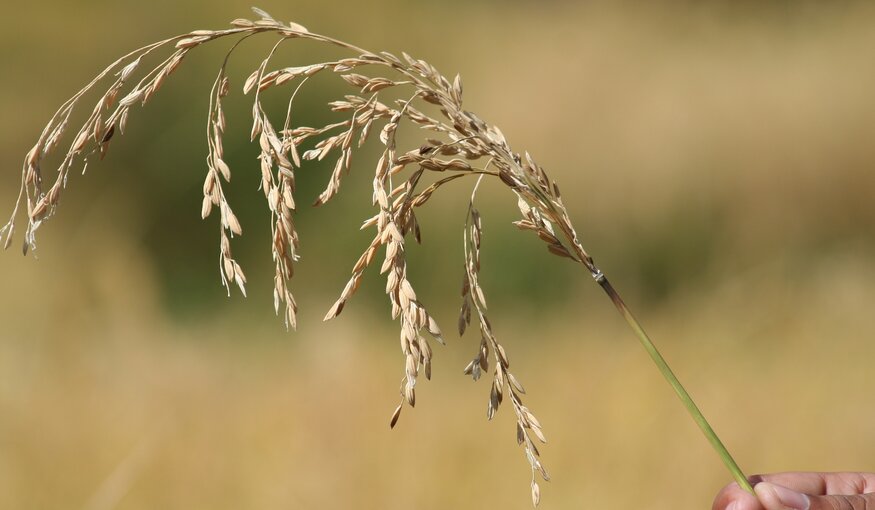Des Moines Register: Leaders Gather to Discuss Crop Diversity
 The future of agriculture relies on the diversity of crops found in the worlds crop collections.
The future of agriculture relies on the diversity of crops found in the worlds crop collections.18 September 2013
About a dozen representatives from Iowa’s agriculture industry joined the leaders of a global foundation in Des Moines Tuesday to discuss the group’s efforts to rescue and preserve the world’s crop varieties.
The Global Crop Diversity Trust, based in Bonn, Germany, works to conserve plant genes so farmers and breeders will be able to adapt crops in changing conditions. The foundation is holding its annual meeting with world gene bank managers this week in Ames, and the Tuesday lunch meeting gave the group a chance to connect with local representatives of Monsanto, the Iowa Farmers Union, the Iowa Corn Growers Association and other groups.
Iowa’s agriculture industry and the location of the USDA’s germ plasm conservation site at Iowa State University made Ames an obvious home for the annual conference, said Executive Director Marie Haga.
In addition to interacting with researchers at Iowa State and the USDA this week, gene bank managers are also visiting the headquarters of agricultural giants like Pioneer.
As population increases and weather becomes more unpredictable, the need for preserving plants is critical, Haga said. Iowa farmers are dealing with a second summer of drought, and by having access to the genetic material in other varieties of the crop, they could potentially breed corn that could withstand the heat in the future.
“A few years ago, I thought rice was rice,” Haga said. “Rice is 200,000 varieties of rice. It’s that diversity that we need, to make sure some of it has the traits we will be looking for tomorrow, 10 years from now or 100 years from now. When diversity disappears, our options for the future disappear.”
While the seeds the Crop Trust preserves are bred naturally, their genetic material may be used to create genetically modified food. The Crop Trust does not take a stand on that practice. Many scientists say genetically modified organisms are safe and necessary to feed growing populations. Opponents say they pose risks to health and the environment.
Since its founding in 2004, the Crop Trust has regenerated more than 76,000 varieties of crops in more than 80 countries. It has also collected and duplicated more than 780,000 seeds in a vault in the Arctic, a “final backup,” Haga said, of the world’s plants.
The Svalbard Global Seed Vault is in Norway, about 600 miles from the North Pole and far from the world’s problems, for good reason. A collection of wheat genes, for instance, is housed amid civil war at a gene bank in Aleppo, Syria. While three-quarters of the wheat varieties are backed up at the vault, the fate of the other genes is precarious.
“This could go wrong any day,” Haga said.
The Crop Trust’s work is significant to Iowa agriculture, said Wendy Wintersteen, dean of ISU’s College of Agricultural and Life Sciences.
“Having this conversation about global crop diversity is a critically important conversation for the public to understand,” Wintersteen said. “We rely on the ability to improve crops to address critical issues, whether it’s disease tolerance, insect resistance or increased production — just pick an issue.”
